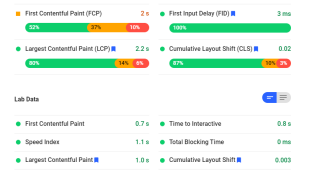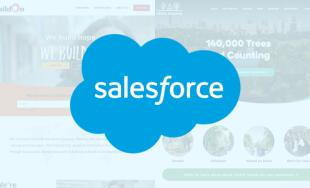Eight Very Important Content Management System Features
As we’ve built out the HiFi Content Management System, we’re always working to make sure we’re including the most important features that allow users to fully leverage their websites. Furthermore, our web development company has built hundreds of sites on various versions of our previous Content Management System and got a boat load of feedback on which features were the most important, helpful, and powerful.
Below is a list I compiled of eight very important elements – I hesitate to call the most important, because that is different to different users. However, these are definitely eight that you should definitely not build a site without. Also, I've eschewed listing some of the no-brainers such as WYSIWYG editor and password protected admin area.
- RSS Feeds – The CMS should automatically generate RSS feeds from all of the sections of the site. Most people tend to just make sure the Blog can generate a feed, but it’s important to ensure that feeds can be generated from anywhere. This feature is critical when trying to push the latest news to the homepage, automatically pull new media onto your Facebook page, and more.
- SEO Control – One of the biggest benefits of a CMS is that it allows your organization to do the hardest part of SEO on your own: create content. However, it’s also important that the site give you control over other important SEO data, such as meta descriptions and title tags. To fully optimize your content and draw in leads, you need to have access to all of your SEO elements.
- Clean URLs – This element goes hand in hand with SEO control, but is important enough to also list on its own. Check out the URLS the CMS creates and look at a few things: 1) they’re not too long, 2) they’re English and could be understood by a person, 3) they can be customized if need be. Too many CMS’ generate sloppy URLs, which ruin any effort at optimization.
- Design Independence – The system needs to be accommodating to any type of design, as design remains an important aspect of visitors’ decision-making process on whether to buy what you’re selling, contact your company, or browse through your content. Don’t underestimate the importance of design; many systems restrict designers/developers and make them design for the system rather than for the brand.
- Different Tiers of User Access – A “super admin” needs to be able to delegate different roles to other administrators. You don’t want admins (or interns) poking around in areas of the site that aren’t relative to them or contain more sensitive information. A system should let you control what content administrators can see and update.
- Simple Form Builder – While there are many really great form building solutions out there, such as Wufoo, it’s important that your CMS have the ability to construct at least simple forms. It gets tedious to always have to login (and pay) to outside vendors to build a form and gather data, and there’s no reason you shouldn’t be able to do it from the CMS.
- Speed and Performance – This one seems to get underestimated by a lot of people, but is a huge deal. I’ve been bogged down in some systems where it takes several minutes to just get to the page I want to edit. This sloth should be a deal breaker. If a CMS can’t perform its main duty speedily and reliably, then that’s typically just an indicator of things to come with that system and company – not to mention it’s really annoying and inefficient
- Incorporate Plugins – The system should have demonstrated its ability to scale through plugins. No base CMS will solve every possible website problem, and you should be wary of anything that claims it does. However, the CMS needs to be open enough that your developers or the CMS company can incorporate plugins that can help improve and scale your site as needed over time.
Does your current CMS really excel without any of these features? Did I leave off some critical features that should be incorporated in this list? Later, I’ll be doing a post on the features that aren’t really as important as you might think.



Comments
Prince Walker
Hi Joel, Nice list.1 for "SEO Control". I think that this is the most important area, since these features are not inherent with CMSes. A CMS should always have customization around templating and some other things, but SEO control is something often satisfied with plugins. But yea, I think if a CMS has all of your listed features, it should be something worth trying out.
Chelsea_Certspring
I don't think any CMS can really excel without any of these features; they form an integral part of the system! But I remain confused regarding the speed thing. What should be the strategy? Should a website prefer speedy content and less research or more research with less speed? I think quality takes a setback with speed :/Well, thanks for sharing this, glad reading..
An. Spartacus
Guys, you do excellent work! I'm interested in everything that you announce. With impatience I wait yours CMS and open release.Mike
About what is the ETA on the first release?Lenny Terenzi
Loving the idea of simple and easy form creation. I love Wufoo but sometimes you just need a simple form.Mark Sanchez
Do comments work without a website?Mark Sanchez
This list seems to cover the features I look for, too. What about social media integration, though?Leave a comment